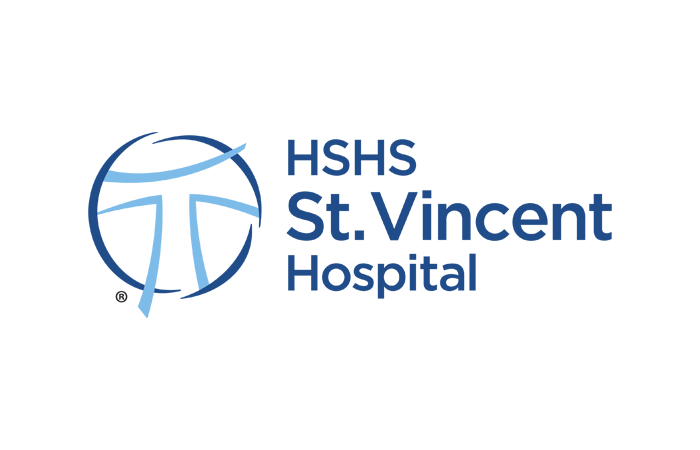Having a Baby
At HSHS St. Vincent Hospital, you’ll receive expert, individualized and comforting care so you can focus on what matters most, enjoying the first precious moments of a lifetime.

Packing for the Hospital

During your stay with us the hospital will provide
- Blow dryer.
- Hospital gowns.
- Disposable panties and sanitary pads.
- Baby gowns and blankets (will need your own for home).
- Enough disposable diapers for your hospital stay (have a supply ready at home).
- If formula feeding: Ready to use bottles of formula (you will need your own supply for home).

What to Pack for Mom
Necessary:
If desired:
- Insurance card and hospital paperwork.
- Eyeglasses, if needed.
If desired:
- Cell phone, charger.
- Book, magazines or cards for early labor.
- Bathrobe.
- Socks and slippers.
- Hair bands, ties or barrettes.
- Lip moisturizer.
- Massage lotion.
- Tennis ball or massage /comfort tools.
- Sentimental item from home, such as a favorite pillow or blanket.
- Focal point, such as an ultrasound or vacation photo.
- Music.
- Birth plan.
- Nursing bra.
- Loose, comfortable clothes.
- Basic toiletries and a hair brush.

What to Pack for Baby
- Infant car seat (install car seat base early).
- Going-home outfit.
- Receiving blanket.
- Pair of socks or booties.
- Extra cap/hat.
- Baby book for footprints.

What to Pack for Your Partner/Support Person
- Camera, cell phone, chargers.
- Cash for parking.
- Basic toiletries.
- Change of clothes.